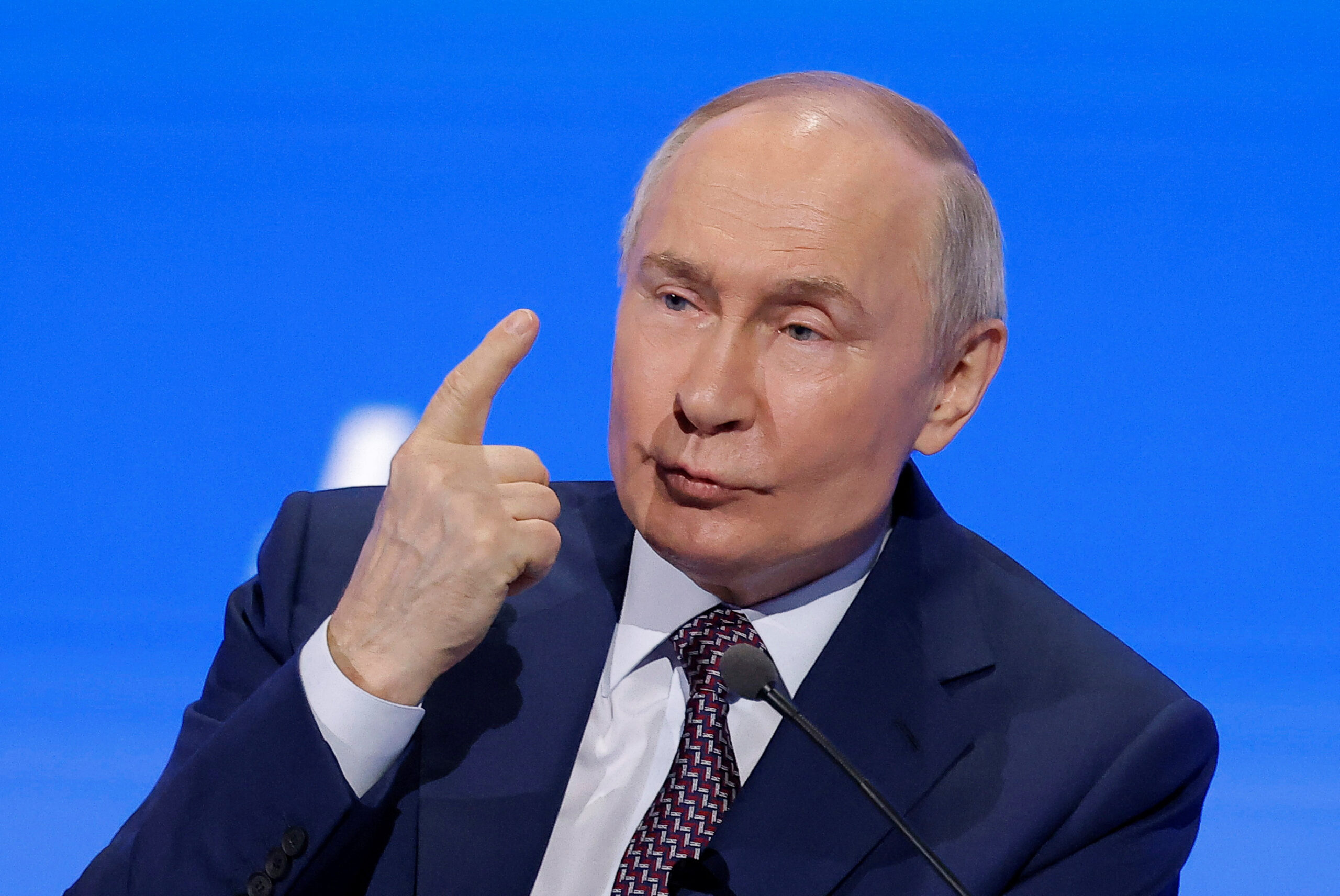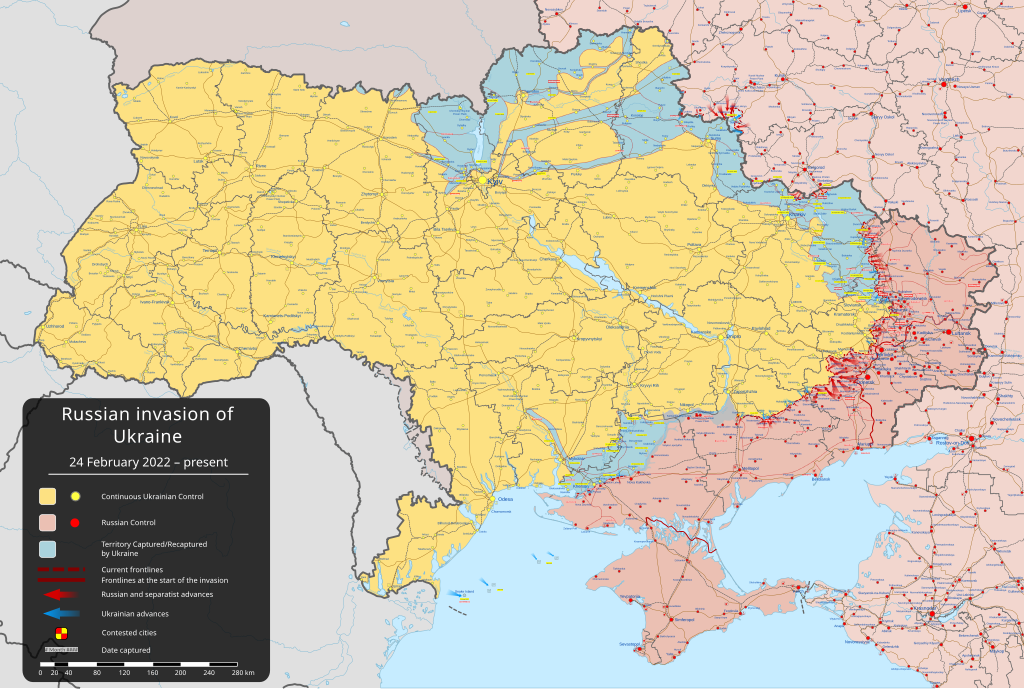Russian President Vladimir Putin has indicated he would agree to a 30-day ceasefire in Ukraine, but only if the United States halts all military aid to Kyiv. Mr. Putin conveyed the condition during a phone call with his U.S. counterpart, Donald Trump, on Tuesday, after previously discussing it with Trump’s special envoy Steve Witkoff last week, according to Bloomberg.
The Kremlin’s move, however, does not appear to be a straightforward concession. Rather, by insisting on a total stoppage of U.S. arms deliveries — comprising roughly 40% of Ukraine’s military aid — Mr. Putin is apparently raising the stakes.
From Moscow’s perspective, any potential peace agreement with Ukraine must factor in Russian strategic interests and “security concerns.” These include the recognition of Russian sovereignty over four regions of eastern and southern Ukraine — Donetsk, Luhansk, Zaporizhzhia, and Kherson — unilaterally annexed by Mr. Putin in late 2022, and only partially occupied by Russian forces. The demand also extends to Crimea, annexed in 2014, as well as a formal renouncement by Ukraine of any ambitions to join NATO and a substantial reduction of Kyiv’s military forces.
Russian Deputy Foreign Minister Alexander Grushko made it clear that Moscow is seeking “ironclad security guarantees” and will not tolerate the presence of peacekeeping forces from NATO member states, including the possibility of a European-led “coalition of the willing.”

The core of the negotiations centers on which territories and resources will remain under Russian control if a ceasefire is agreed. For weeks, sources close to the Trump administration have openly discussed the need for Ukraine to renounce NATO membership and cede parts of its territories already occupied by Russian forces in what some have called a “Yalta 2.0.”
According to Semafor, Washington is considering recognizing Russian sovereignty over Crimea, though no final decision has been made. The New York Times further reports that the White House might not only accept Moscow’s control of the Black Sea peninsula but also a substantial portion of the other areas currently under Russian occupation in eastern and southern Ukraine. The Times also mentions the possibility, circulating in diplomatic circles, that Putin could seize Odessa, Ukraine’s third-largest city and key port.
Kremlin spokesman Dmitry Peskov declined to comment on the specifics, and no statements were made from the White House. Ukraine, however, is deeply concerned. Officials close to President Volodymyr Zelensky are particularly worried that a weapons halt would provide Moscow with valuable time to regroup and strengthen its lines in the Donbas.

On the other hand, Zelensky is determined not to demobilize its military nor abandon its NATO aspirations. Ukrainian officials are firmly opposed to further territorial concessions, although they acknowledge that the current front lines may effectively become a frozen conflict, akin to the Korean demilitarized zone. Kyiv’s non-negotiable conditions also include the return of children illegally deported to Russia, the release of civilians illegally detained by Moscow, and the securing of international security guarantees.
However, it remains unclear what role Ukraine will actually play in discussions about its future. Just before his call with Putin, Trump had stated that “many elements” of an agreement had already been settled, hinting at talks over “territories and power plants” and emphasizing that both Moscow and Kyiv had already addressed the issue of “splitting certain assets.” Bloomberg notes that the Republican leader’s remarks suggest many decisions have already been made — whether or not Ukraine is involved.
Rather than seeking an immediate peace, Western officials speculate that Putin’s main objective is to ensure that Kyiv does not gain strength during a ceasefire while Russian forces continue to advance, especially in the Donbas and Kharkiv regions. Militarily, Moscow now has the upper hand, having already reclaimed vast portions of territory in the Kursk oblast which had been partly occupied by Ukraine since last August. The Russian leader has also raised concerns over who will oversee the implementation of any potential ceasefire and who will monitor violations along the almost 1,300-miles front.
Europe, meanwhile, has been sidelined in the negotiations and looks on with suspicion at Russia’s strategy. A senior official from Brussels emphasized that halting arms supplies only to Ukraine, while leaving Moscow unchecked, would create a “dangerous imbalance.” British Prime Minister Keir Starmer, who spoke with Trump ahead of the call with Putin, reiterated that Kyiv must be in the “strongest possible position” to secure a “fair and lasting” peace.












